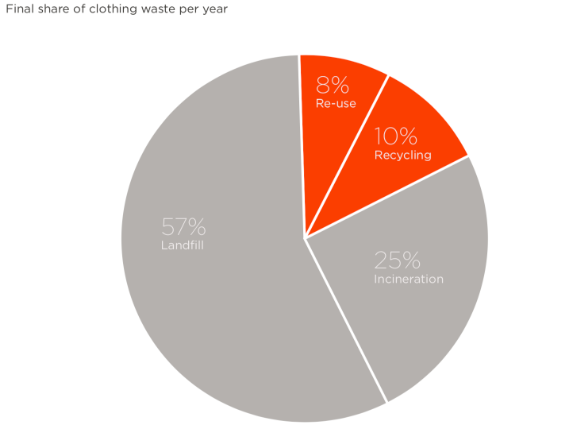By Sean Fleming*
All that coffee produces a lot of waste. Coffee grounds often end up in landfill or being washed into sinks and drains, contributing to the food waste problem – around a third of all food produced is thrown away.
Now two entrepreneurs in Helsinki have started making sneakers from used coffee grounds.
Son Chu and Jesse Tran are self-confessed sneaker obsessives. But, concerned about their environmental impact, they couldn’t find sustainably made sneakers they found stylish and affordable. So they made some.
Their business, Rens, combines fabric made from coffee grounds with recycled plastic waste to create a material light and durable enough to use for footwear. A pair of their sneakers weighs 460g – 300g of that is coffee. The equivalent of six discarded plastic bottles is also used in each pair.
The sweet smell of innovation
One of the natural properties of coffee grounds is that they help eliminate odours – good news for anyone familiar with the smell of well-worn sneakers. And Rens says its shoes are vegan, too.
With customers in 57 countries, the firm is about to ramp up production after a successful fundraising campaign. Its coffee collection and shoe-making processes are currently handled in China, but it says it has ambitions to move manufacturing to its founders’ home country of Vietnam.
“We just wanted to make the best sneakers, something that was technically advanced and sustainable,” says Tran. “We both came to Finland to study. But it’s important to us that our manufacturing eventually moves to our home country – there’s a huge growth in manufacturing and investment in Vietnam and we want to be part of that.”
Oranges are the new black
Rens isn’t alone in using food byproducts and waste to create clothing.
The fashion industry is huge, with annual sales of $1.3 trillion. But it consumes a vast amount of resources and generates harmful pollution and emissions. It is responsible for around 20% of the world’s wastewater.
An increased interest in sustainability in fashion, though, has led to a range of alternative materials.
Hemp, pineapple leaves, banana trunks and sugar cane bark are being turned into packaging, fertilizer, biofuel and environmentally friendly fibre.
Clothing company Hugo Boss has a range of footwear made from Pinatex, derived from pineapple plant fibre. Fashion designer Stella McCartney is backing a leather alternative called Mylo that is made from mushrooms. Italian fashion label Salvatore Ferragamo has a range of clothes that use a material made from orange peel. And Swedish fashion retailer H&M uses algae in the soles of some its sandals.

According to the sustainable fashion industry body Common Objective, 57% of all discarded clothing ends up going to landfill, while “35% of all materials in the supply chain end up as waste before a garment or product reaches the consumer”.
A greater use of alternative materials could help reduce the fashion sector’s waste levels, as well as make use of leftovers from other industries.
*Senior Writer, Formative Content
** First published in weforum.org




 By: N. Peter Kramer
By: N. Peter Kramer
